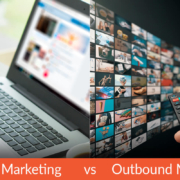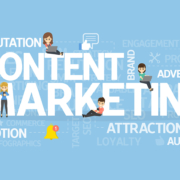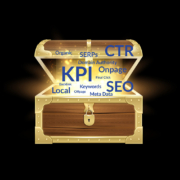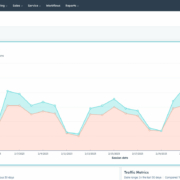Content Marketing Is Important – Here’s Why
Why is content marketing important? It’s not just a trend; it’s an established strategy that savvy business owners have used for years to gain visibility and engagement with their target audience.
Whether you’re a startup or a well-established business, understanding why content marketing is important for your online presence can help elevate your brand awareness and increase sales long-term. Here’s why quality content creation is one of the best investments you can make for your business today.
Building Your Brand
It’s a no-brainer; every single digital marketing strategy should contain good content. What’s that even mean? More than you think.
Let’s start with perception. When you think of a person’s reputation, what do you take into consideration? Everything. All new content has to fit with your brand reputation.
It’s simple — a positive brand reputation leads to better conversion rates. Your responses to customers, messages in inbound marketing (like email blasts), and how you display company culture make up your brand rep. Don’t forget that we’re in an age where everything is shared so quickly, thanks to social media and online reviews.
Converting New Leads
The importance of content marketing helps businesses attract and engage their target audience by providing valuable and relevant information. By creating and distributing high-quality content, a business can establish itself as an industry leader, build trust with its audience, and ultimately drive more conversions and sales.
Great content marketing can also help with search engine optimization and social media engagement, which can lead to more visibility and website traffic for a business.
Valuable content helps nurture leads when it addresses different stages of the buyer’s journey. Each time they come back, they get a bit more information.
Pieces to Consider in Your Content Marketing Strategy
There are many different types of content marketing efforts, but some common ones include:
1. Blog Content:
Writing and publishing articles on a company website or blog to provide valuable information and insights to the target audience.
2. Social Media Marketing:
Creating and sharing content on social media platforms like Facebook, Twitter, LinkedIn, and Instagram to engage with the target audience and drive traffic to the company website.
3. Infographics:
Creating visual representations of information or data to make complex information easy to understand and shareable.
4. Whitepapers:
Creating and sharing long-form content that provides in-depth information and insights on a specific topic.
5. Case Studies and Customer Testimonials:
Highlighting the success stories of existing customers to build trust and credibility with potential customers.
6. Webinars and Online Events:
Hosting online events and webinars to educate and engage the target audience.
7. Email Marketing:
Creating and sending email campaigns to subscribers to keep them informed and engaged.
The most effective type of content depends on the company and its industry. Create content that is meaningful and will solve problems for both current customers and potential customers. For example, B2B marketing and B2C marketing have two entirely different audience types. Adjust your content depending on if you’re talking to company decision makers or want Martha to finally click “add to cart.” Know your audience.
Not sure who that is? Create personas of who you want to reach. As you research, discover the relevant content that keeps them coming back to your brand. Maybe that’s through podcasts or social media content.
Not All Content Is the Same
Each piece of content has its own responsibility.
A blog is useful content that will educate your audience on a topic you know a lot about. Build that credibility by including backlinks to other sources to build trust and off-page SEO. Have a solid call-to-action (CTA) with your content. You know what we mean. “Sign Up Now!” “Get Free Quote.” Those are CTAs and they guide your audience to follow your lead.
Keeping it Classic
You know we love digital marketing campaigns, but sometimes throwbacks have a place in today’s marketing strategies.
Traditional marketing means using the “technologies” that were around before the digital era. Print ads, TV and radio, direct mail, and telemarketing are things to consider – if that’s what you find your audience would respond to while researching. It sometimes doesn’t hurt to do some digital marketing along with traditional.
Tracking the Metrics
Not sure how to find the metrics of traditional marketing? We won’t sugarcoat it; it’s not easy.
Printed coupon codes, surveys and focus groups, and call tracking are ways to see if your vintage marketing is working.
Let Lift Marketing Guide You to Consistent Content
Now you know some of the benefits of content marketing. Still feel like you’re saying, “but why is content marketing important?” That’s not a problem. Make your road to an effective content marketing plan easier by contacting us at Lift Marketing. We live for this stuff.












